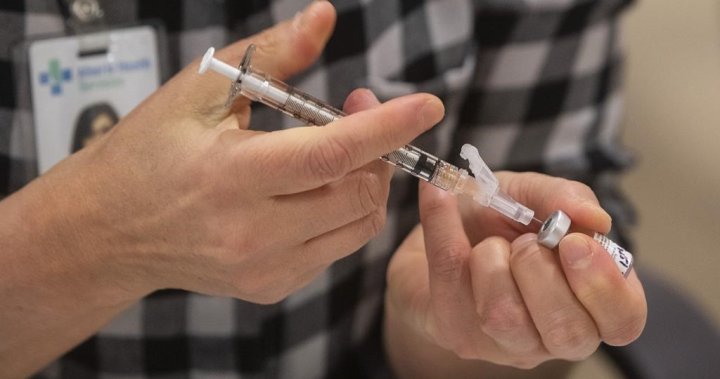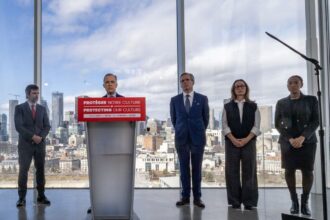In a significant shift to public health policy, Alberta residents will soon need to reach for their wallets when seeking COVID-19 vaccinations. Provincial health officials announced yesterday that beginning this fall, Albertans will bear the financial responsibility for coronavirus vaccines—a move that marks the end of universal free access to these immunizations in the province.
The decision comes as part of Alberta’s broader strategy to normalize COVID-19 management within the existing healthcare framework. According to Health Minister Adriana LaGrange, “We’re transitioning to treat COVID-19 vaccinations similarly to other immunizations like the seasonal influenza vaccine, where costs are covered for specific vulnerable populations while others may access them through insurance or direct payment.”
For many Albertans, this policy change raises immediate questions about affordability and access. While the exact pricing structure hasn’t been finalized, health officials estimate costs could range between $30-$55 per dose, aligning with current pricing for other adult vaccines not universally covered under provincial health plans.
The province will continue covering vaccination costs for certain high-risk groups, including seniors over 65, immunocompromised individuals, residents of long-term care facilities, and those with specific chronic health conditions. This targeted approach mirrors existing programs for seasonal influenza vaccines, which have operated in the province for years.
Dr. Mark Joffe, Alberta’s Chief Medical Officer of Health, emphasized that this shift reflects the evolving nature of the pandemic. “COVID-19 remains a serious health concern, but we’re entering a different phase of our response. Vaccines continue to provide important protection, particularly for vulnerable populations, and we encourage Albertans to stay current with recommended doses.”
Health policy experts have expressed mixed reactions. Dr. Lynora Saxinger, infectious disease specialist at the University of Alberta, notes that “Maintaining broad vaccine access is crucial for community protection. When financial barriers arise, we typically see lower uptake, which could potentially impact our collective immunity.”
The Alberta Medical Association has urged the government to reconsider, warning that creating financial barriers to vaccination could lead to increased hospitalizations and healthcare costs in the long run. Dr. Paul Parks, president of the AMA, stated that “Prevention remains far more cost-effective than treatment, both economically and in terms of human suffering.”
For working Albertans, the financial impact will vary significantly based on insurance coverage. Those with comprehensive workplace benefits may continue accessing vaccines at little to no cost, while approximately 20% of Albertans without private insurance will bear the full expense—potentially creating a two-tiered system of access.
Neighboring provinces have yet to announce similar measures, though health policy analysts suggest this could signal a broader national trend as provinces grapple with post-pandemic budget constraints and shifting priorities in healthcare spending.
As Alberta prepares for this transition, critical questions remain about the long-term implications for public health: Will this policy shift undermine years of effort to achieve high vaccination rates? How will reduced accessibility affect community protection against future variants? And perhaps most fundamentally, at what point does a public health measure become an individual responsibility rather than a collective one?


















